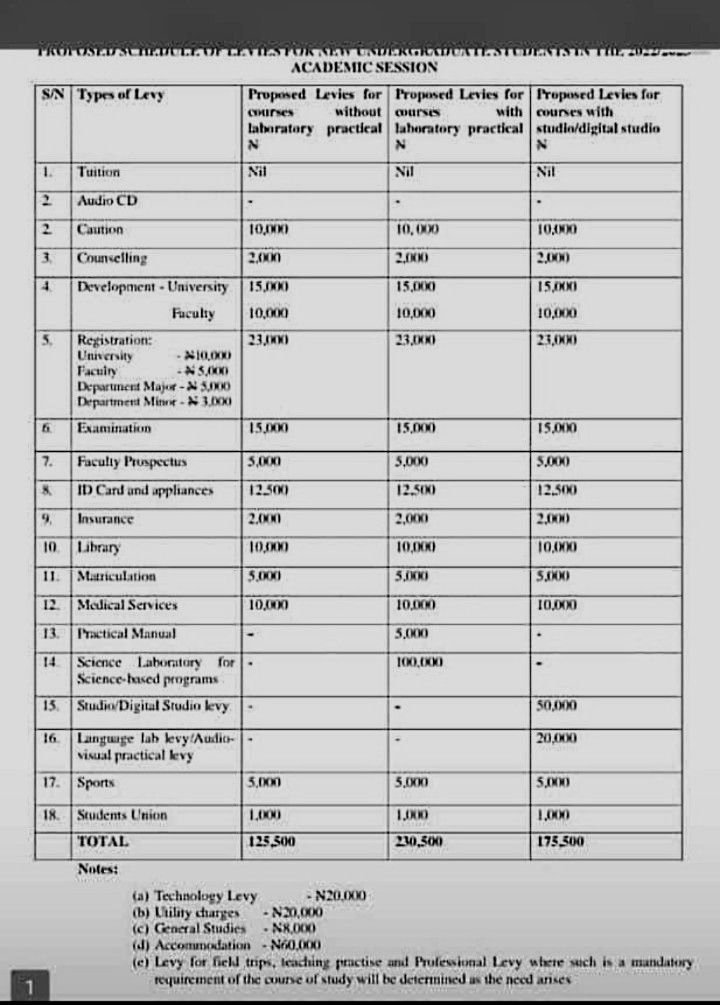
Ultimate Guide To University Of Ibadan School Fees
“University of Ibadan school fees can be a crucial consideration for prospective students and their families. Understanding the cost of tuition, accommodations, and other expenses is vital for planning ahead. In this article, we will delve into a comprehensive breakdown of the university of Ibadan school fees, shedding light on the different factors that contribute to the overall expenses. Stay tuned to discover all you need to know about the financial aspect of pursuing education at this esteemed institution.”
Understanding University of Ibadan School Fees
Welcome to our detailed guide on the school fees structure at the prestigious University of Ibadan in Nigeria. As a student or prospective student, it is crucial to have a clear understanding of the costs involved in pursuing higher education. In this article, we will delve into the various aspects of University of Ibadan school fees, including tuition fees, accommodation costs, and additional expenses.
The Importance of Knowing School Fees
Knowing the breakdown of school fees is essential for both current and prospective students. By understanding the financial requirements, you can better plan and budget for your education. Let’s explore the different components that make up the University of Ibadan school fees structure.
Tuition Fees
Tuition fees are the core component of any student’s expenses. At the University of Ibadan, tuition fees vary depending on the course of study and level of education. Undergraduate students typically pay different fees compared to postgraduate students. It is important to check the official university website for the most current tuition fee information.
For undergraduate programs, tuition fees can range from ₦50,000 to ₦100,000 per academic session, depending on the faculty and specific course requirements. Postgraduate students may expect to pay higher fees, ranging from ₦80,000 to ₦200,000 per session.
Accommodation Costs
Another significant aspect of University of Ibadan school fees is accommodation costs. The university provides on-campus accommodation for students who wish to reside within the campus premises. Accommodation fees vary based on the type of room and facilities provided.
Undergraduate students can opt for hostel accommodation, with fees ranging from ₦20,000 to ₦50,000 per session. Postgraduate students may have different options available, including self-contained apartments or shared rooms, with costs ranging from ₦40,000 to ₦100,000 per session.
Other Expenses
In addition to tuition and accommodation fees, students should also budget for other expenses such as registration fees, library fees, and medical fees. These miscellaneous expenses can add up and impact the overall cost of education at the University of Ibadan.
Registration fees typically range from ₦5,000 to ₦10,000 per session, while library fees may be around ₦2,000 to ₦5,000. Medical fees are also an important consideration, with costs varying based on the services provided by the university’s health center.
Financial Aid and Scholarships
For students facing financial constraints, the University of Ibadan offers various forms of financial aid and scholarships to eligible candidates. It is important to explore these opportunities and apply for assistance if needed. Scholarships can help offset tuition fees and reduce the overall financial burden of education.
Planning and Budgeting
Effective planning and budgeting are key to managing school fees and related expenses. By creating a detailed budget that accounts for tuition, accommodation, and other costs, students can better prepare for their academic journey at the University of Ibadan.
Remember to factor in extra expenses such as textbooks, transportation, and personal expenses when creating your budget. By staying organized and proactive, you can ensure a smooth financial experience throughout your time at the university.
In conclusion, understanding the school fees structure at the University of Ibadan is vital for students and parents alike. By familiarizing yourself with the various components of school fees, including tuition, accommodation, and additional expenses, you can make informed decisions regarding your education.
Remember to stay updated on any changes in the school fees structure and explore financial aid options if needed. With proper planning and budgeting, you can navigate the financial aspects of university life with confidence. We hope this guide has provided valuable insights into the University of Ibadan school fees structure.
UNIVERSITY OF IBADAN UI SCHOOL FEES
Frequently Asked Questions
What is the current tuition fee for undergraduate students at the University of Ibadan?
As of the current academic session, the tuition fee for undergraduate students at the University of Ibadan varies depending on the course of study and level. It is advisable to check the university’s official website or contact the bursary department for the most up-to-date fee structure.
Are there additional fees apart from tuition for students at the University of Ibadan?
Yes, apart from tuition fees, students at the University of Ibadan are required to pay additional fees such as accommodation fees, registration fees, medical fees, and other miscellaneous charges. These fees contribute to various services and facilities provided by the university.
Is there any financial assistance available for students who may have difficulty paying the school fees at the University of Ibadan?
Yes, the University of Ibadan offers various forms of financial assistance to students who may have difficulty paying their school fees. This assistance may come in the form of scholarships, grants, work-study programs, or payment installment plans. Students facing financial challenges are encouraged to reach out to the university’s financial aid office for support.
Final Thoughts
In conclusion, the University of Ibadan school fees stand out as reasonable compared to other institutions. The flexibility in payment options demonstrates the university’s commitment to accessibility and affordability. Overall, the school fees structure reflects a balance between quality education and financial considerations for students.



